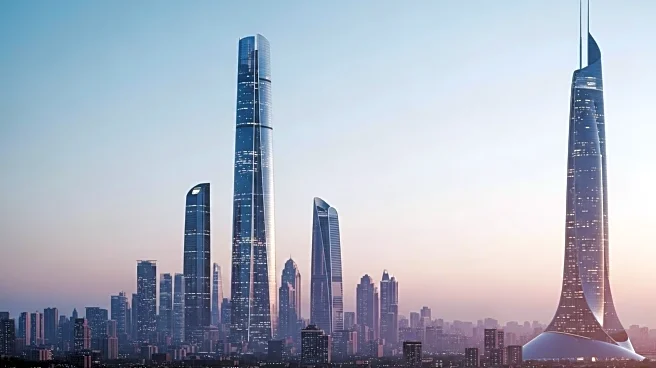What is the story about?
What's Happening?
Saudi Arabia is undergoing significant changes under the leadership of Crown Prince Mohammed bin Salman, who initiated the Vision 2030 plan in 2016. This plan aims to diversify the kingdom's economy away from oil dependency and introduce social reforms. Key changes include lifting restrictions on women, such as allowing them to drive, and promoting entertainment and cultural activities. These reforms are part of a broader effort to modernize Saudi society and improve its global image, which has been tarnished by past associations with radicalism.
Why It's Important?
The liberalization efforts in Saudi Arabia are crucial for attracting foreign investment and boosting private sector growth. By easing social restrictions, the kingdom aims to increase women's participation in the workforce and draw international tourists and businesses. These changes are expected to create a more dynamic and diversified economy, reducing reliance on oil revenues. However, the reforms have faced resistance from conservative factions within the country, leading to a government crackdown on dissent. The success of these reforms could significantly alter Saudi Arabia's economic landscape and its role on the global stage.
What's Next?
As Saudi Arabia continues to implement its Vision 2030 plan, the kingdom will likely face ongoing challenges in balancing modernization with traditional values. The government may need to address human rights concerns and restrictions on free speech to fully realize its goals. Additionally, Saudi Arabia's efforts to host major international events, such as the World Cup in 2034, will test its ability to maintain a positive global image. The kingdom's progress in these areas will be closely watched by international observers and could influence future foreign investment and diplomatic relations.
Beyond the Headlines
The liberalization in Saudi Arabia reflects a broader trend of modernization in the Gulf region, where countries are seeking to diversify their economies and improve their global standing. The changes in Saudi Arabia could inspire similar reforms in neighboring countries, potentially leading to a more open and interconnected Middle East. However, the pace and extent of these reforms will depend on the willingness of regional leaders to embrace change and address internal and external challenges.

















